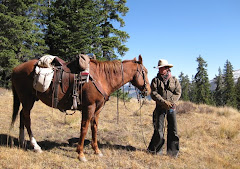 I used to think to make a good horse, I had to be tough enough to stay on and ride no matter how western that horse got. Just holding on long enough, or riding it out, would teach the horse a lesson. It never occurred to me back then that if a horse bucks, rears, runs off or otherwise “misbehaves” (in human terms, of course), that he or she is probably scared and confused. And this usually means the rider did not communicate clearly, or did not teach the horse how to do what is being asked of him or her yet.
I used to think to make a good horse, I had to be tough enough to stay on and ride no matter how western that horse got. Just holding on long enough, or riding it out, would teach the horse a lesson. It never occurred to me back then that if a horse bucks, rears, runs off or otherwise “misbehaves” (in human terms, of course), that he or she is probably scared and confused. And this usually means the rider did not communicate clearly, or did not teach the horse how to do what is being asked of him or her yet.Bottom line, bucking, rearing, running off, etc. are, more often than not, signs that the mistake is mine. The horse is trying to find a way out of my poor leadership or misjudgment. A pretty clear sign from the horses that I need to stop and think, that I need to slow down and re-adjust my teaching and communication methods with my horse.
I suppose a more confident rider can hang on and ride it out and assume the horse will just get over it. I admire such a riders strength in doing so, but often I wonder why. Is this the best way to teach the horse the correct behavior? Perhaps it is when in the heat of the moment the rider is still able to focus and communicate clearly with the horse, so well so that he or she can properly show the horse the “right” way while riding that “wrong” way out. Some can do this. Others just try to hold on, wait for the horse to quit that behavior, and hope they never have to deal with it again. In such cases, I don’t believe either horse or rider has learned a thing except avoidance.
Maybe I’m just getting older and more interested in avoiding accidents, but I’ve chosen the other way. Probably by necessity. But it works. I have trouble staying focused and figuring out what my horse really needs and is looking for when he is busting up. On the ground by my own choice (not because I was tossed) is where I need to be to teach the horse the basics. With my feet firmly planted on the dirt, and without the fear of being tossed, I am able to focus and calmly assess what I was doing wrong, and what I need to work on to help the horse figure it out. Go ahead, call me a whimp. But I think you’ll find my horses “get it.” When I calm down and focus and teach them well from on the ground, then being up in the saddle is a breeze for them. And a breeze for me. I don’t owe anyone a rodeo show. I do owe my horses a solid foundation.
This usually just means slowing down. Take the time necessary to teach properly. If I find an area of weakness in me or my horses, it’s time to stop pushing and hope they (and I) just figure it out. Maybe they will, maybe they won’t, or maybe they’ll get through it this time but still not really understand it and the next time I ask, we’re back to square one. Often, I am leading a group of riders or pack stock, and stopping on the trail to work things out, taking the time that is probably necessary to adequately teach, I often admittedly do not do. I wish every time I encountered a problem, I could use it as an opportunity, stop what I was doing, and work it out with my horse. Better to teach the lesson once and well, then have to deal with an ongoing problem. A problem that usually is based on nothing more than not having taken the time to teach.





